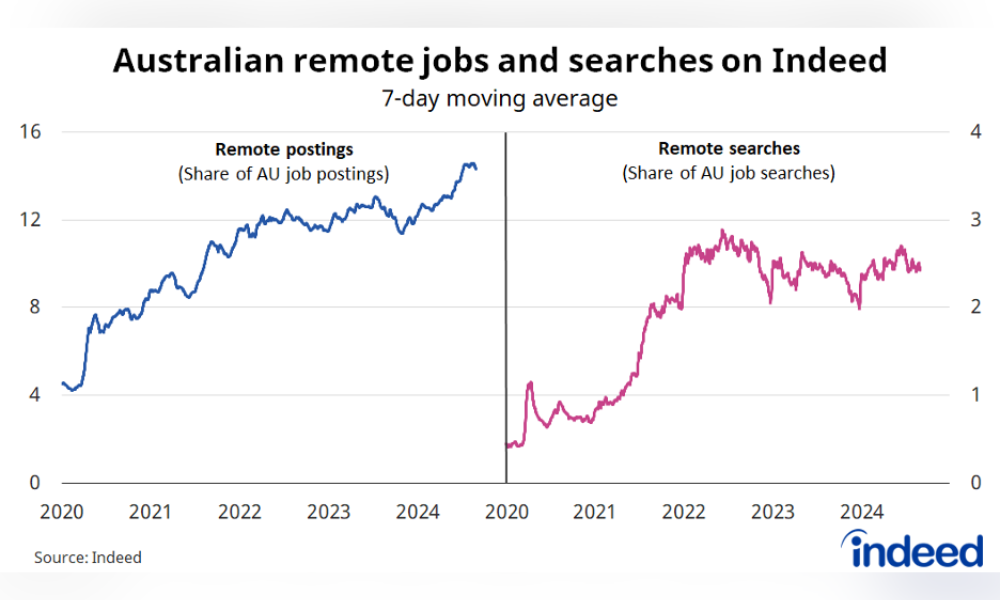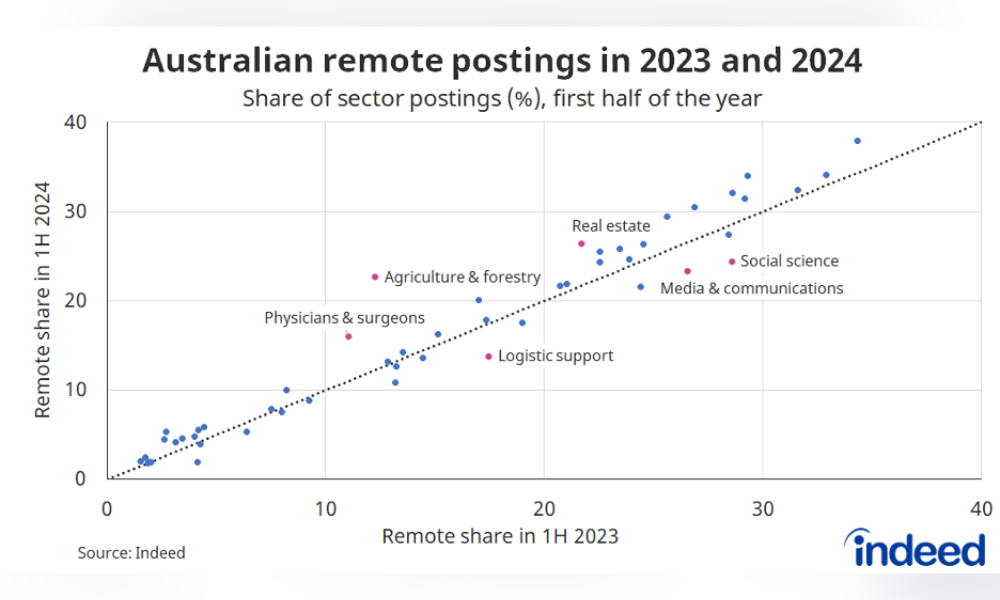
Increase comes despite tech job opportunities declining

The share of job postings in Australia that mentioned remote work has reached 14.3% by the end of August, according to a new Indeed report.
This is slightly higher than the 12.2% recorded a year ago but falls short of its all-time high.
The increase comes amid a strong demand for remote work in Australia, where one in every 41 jobseeker searches or 2.4% are related to the work arrangement.
"Now 2.4% of searches might not seem like a lot, but there are millions of different search terms jobseekers use to find a job," Indeed said. "Outside of generic terms including 'full-time' or 'part-time,' searching directly for remote work is one of the most common ways that Australian jobseekers engage with the Indeed platform."

Meanwhile, the Indeed report also pointed out that the overall increase in the remote job postings share is "all the more remarkable" given the drop in tech job opportunities in recent years.
This is because the tech sector is one of the first industries to embrace remote work, according to the report, with a third of job postings in Australia still explicitly mentioning remote work as of the end of August.
Overall, the remote posting share also increased in almost 70% of occupational industries, with the biggest gains reported in:
On the other hand, the biggest decrease in remote job posting share for occupational industries is in social science (-4.1 percentage points, from 28.5% to 24.5%).

According to Indeed, the findings indicate that remote work appears "firmly entrenched in the Australian workplace."
But it also noted that current labour statistics are starting to show signs of shifting in favour of the employer.
"Yet there have been few signs of moderation in the frequency with which remote work is offered. If anything, it's moved in the other direction, with the remote posting share rising for almost 70% of occupations over the past year," the report said.
It further noted that any reduction in WFH frequency that can be attributed to weaker labour market conditions will "prove uneven."
"Some organisations have fully embraced WFH, transforming their work structure and systems to accommodate remote work, leaving them committed to these arrangements and less likely to change course, regardless of labour market conditions," it said.
"Other organisations reluctantly embraced WFH as a matter of operational necessity, and may happily return to more traditional work arrangements if labour market conditions allow."
The findings come amid recent return-to-office orders from employers, such as Amazon and Tabcorp, which mandated staff to come to the office five days a week.